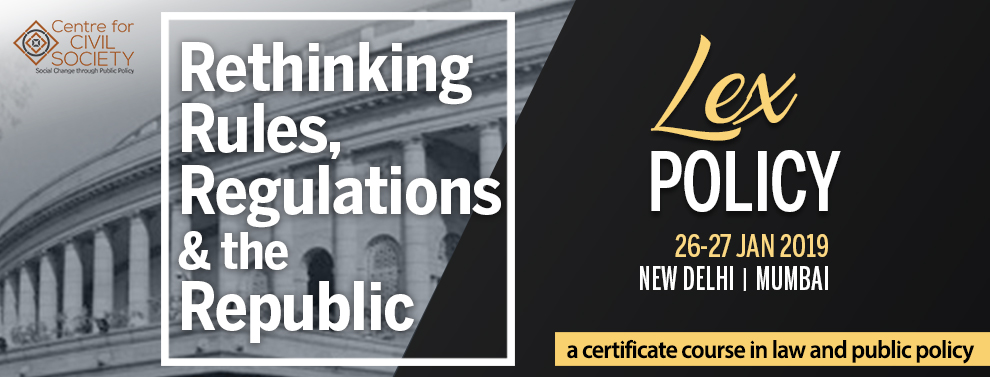Lex policy is a certificate course in law and public policy. The course will explore the various ways in which the constitution remains the fundamental determinant of government policy, and what implications it has had on India's policy success and failures.
About the Program
The Republic Day marks the day when the Constitution came into effect. Today, the Constitution is often used as an instrument for progressive change, or seen as an aspirational document of what the State should be. While it is both of them in limited capacities, it's fundamental role is to pose a set of constraints--to establish separation of powers, a system of checks and balances and to constrain the scope of legislation, among other things.
The document has been remarkable in ensuring peaceful transitions of power, protection of linguistic minorities, women's and dalits' rights and in constraining majoritarianism. At the same time, government policy has shaped its interpretation in such a way that it has failed to effectively constrain the State from intervening in citizens' lives. The Indian state's long conflict with individual liberties is manifest in constitutional cases like Champakam Dorairajan (1951), Golaknath (1967), Kesavananda Bharati(1973) and Justice K. S. Puttaswamy (Retd.) (2017). The Directive Principles of State Policy and Fundamental Rights raise some fundamental contradictions inherent in the Constitution.
These issues are not of mere academic interest. On the contrary, government intervention continues to weigh heavy on India's growth story. There are a 'million mutinies' across the country, on issues such as land rights, reservation in education and jobs, the unemployment crisis, religious freedom and others whose roots lie in an unrestrained state which acted as an arbiter of privilege for one section over the other.
On this Republic Day, join us as we attempt to understand the role of the constitution in India's history and the future that lies ahead. Seats are limited.
